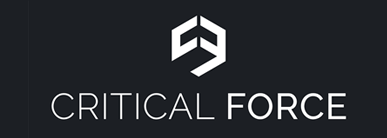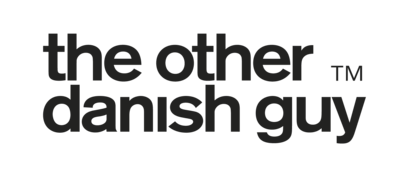“Protecting our trademark with Ipriq was a straightforward and clear process.”
Critical Force Oy, the game studio that has gone global from its base in Kajaani with its Critical OPS game, has gained a strong foothold on the game market worldwide. With the help of Ipriq, the studio protects its Critical OPS trademark in the areas where the game has the most players.
World-class gaming experts from Kajaani
Critical Force is a Kajaani-based mobile game studio that has increased its headcount to almost 80 in six years, and seen the numbers of players of Critical OPS reach the millions.
“We have offices in Kajaani and South Korea. In addition, we have one person in Tampere and one in Los Angeles. Our company was officially registered in 2010, but our operations only really got going properly in 2012 when we started making our first game,” says Veli-Pekka Piirainen, founder and CEO of Critical Force.
The first versions of Critical OPS were released in autumn 2015, and the game has been developed since then on the basis of user feedback and testing. The game can be played on mobile devices and it stands out from other action games with its highly polished functionality and playing comfort.
Outsourcing trademark registration made sense
When Ipriq and Critical Force crossed paths in summer 2017, Critical OPS already had a large number of players from around the world.
“Jarmo Talvitie from Ipriq contacted us regarding registering our trade mark. We had already registered the Critical OPS trademark ourselves in Finland and the EU, but it was also important to register it in other countries with a lot of players, such as the US, Brazil, Turkey and Russia,” Piirainen says.
“In Finland and the EU registering our trademark was relatively easy and simple to do ourselves, but when it came to the other countries it made more sense to hire people with enough skills and knowledge to do it for us,” Piirainen says, explaining why his company turned to Ipriq.
Even though there are Critical OPS players in any number of countries, financial considerations meant that the trademark strategy had to focus on certain regions.
“Protecting our trademark in the most significant markets was crucial. If somewhere someone makes a game of the same name, it won’t at least be in the countries that are most important for our success,” Piirainen says.
Of the countries where the trademark was registered, Brazil meant the largest single expense item.
“The registration fees in Brazil were the highest, but, on the other hand, it’s our second most important region after the US. Brazil is also one of the countries where our application has yet to be approved because the authorities’ processes are so slow. The main thing, though, is that the application has been submitted. Now no one else can do so,” Piirainen says.
“Ipriq took care of the entire application process for all the countries, meaning we didn’t have to spend time on it. We have our own lawyer, but we didn’t want to burden them with this, because it could be outsourced easily and cheaply.”
Smooth, professional service at the right price
Piirainen says the best thing about the Ipriq service was how straightforward and clear the process was.
“Their process was fast, but of course we had to wait for the applications to be approved in various countries. Ipriq’s operations were convincing and professional and their fees were reasonable.”
“The clearest benefit from the service is that the game is now trademarked. If we had started doing the whole process ourselves, we would have spent a lot of time and nerves on it. Also, we would probably have been faced with issues that we wouldn’t have considered properly. I recommend Ipriq’s services to anyone who needs trademark registration,” Piirainen says.



